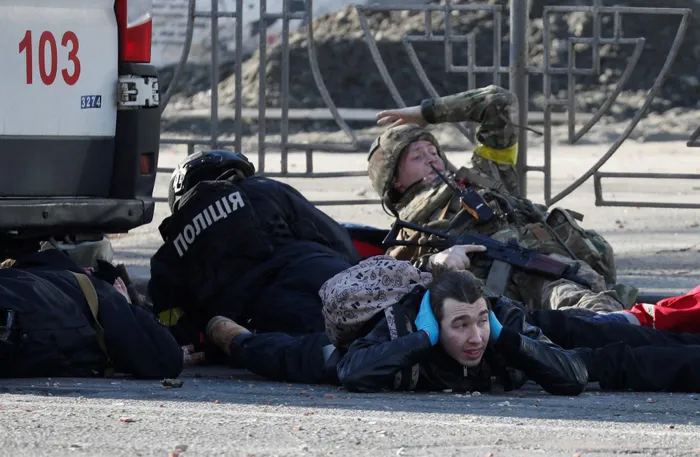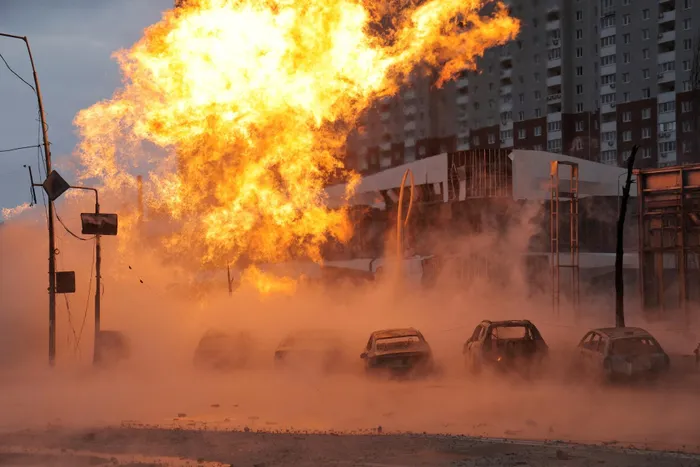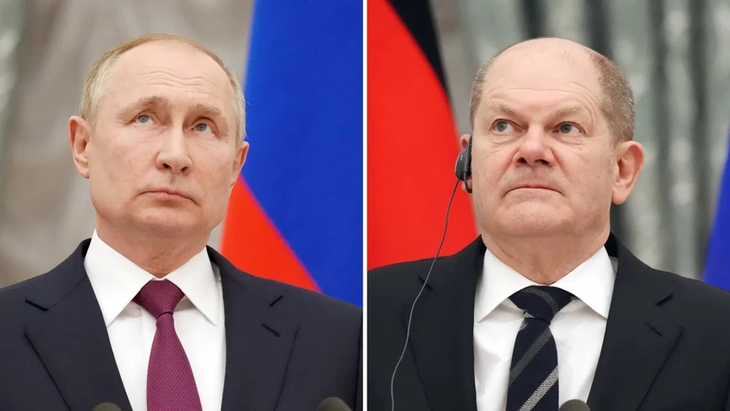(VOVWORLD) - November 19 marks the 1,000th day since the Russia-Ukraine conflict broke out, but new hope for a diplomatic resolution has arisen.
 People take cover during a shelling in Kiev on February 26, 2022 (Photo: Reuters) People take cover during a shelling in Kiev on February 26, 2022 (Photo: Reuters) |
On February 24, 2022, the Russian army launched a “special military operation” in Ukraine. The largest conflict in Europe since World War II has had serious security, political, and economic impacts around the world.
New hope for a resolution
After nearly three years, a military victory for either side remains unlikely. Russia and Ukraine have reached a virtual stalemate that is creating heavy costs and casualties on both sides. Both sides insist they have no intention of conceding to the other side’s demands.
But Donald Trump’s election as the next US President, whose views on the Ukraine conflict are very different from President Joe Biden's, has raised new hopes for an end to the deadlock.
During his election campaign, Mr. Trump repeatedly said he opposes the US giving any further military aid to Ukraine and said he could easily end the conflict within 24 hours of taking office. On November 14 he reiterated his certainty that he can quickly end the conflict.
On November 10, the Washington Post reported that Trump had talked by phone with Russian President Vladimir Putin about the conflict, but Russia denied that such a phone call had taken place. Trump’s election has caused the US’s NATO allies, who have pursued tough policies toward Russia, to reconsider their position.
German Chancellor Olaf Scholz on November 15 surprised many allies by talking on the phone with the Russian President, the first direct communication in almost two years between the head of state of a European country and Putin. Scholz said Europe cannot stay out of any future discussions between the US and Russia on the Ukraine issue.
“In my view it would not be a good idea if there were talks between the American and Russian presidents and the leader of an important European country was not also doing so. Maybe some people in Germany think it’s good, but I don’t think so,” said Scholz.
Although there are critics who say Scholz has given Moscow a negotiating advantage, others say that the Ukrainian government seems to be changing its stance. One day after the phone call between the Russian and German leaders, President Volodymyr Zelensky said on Ukrainian Radio that the conflict must be brought to an end in 2025 through diplomacy. Ukrainian leaders previously insisted that there can be no dialogue with Putin.
 Fire rages after a Russian missile attack in Kiev on January 2, 2024. (Photo: Reuters) Fire rages after a Russian missile attack in Kiev on January 2, 2024. (Photo: Reuters) |
Risk of escalation remains
Despite thin hopes of a diplomatic resolution, the risk of an escalation remains high. Reports of North Korea sending troops to Russia and the US administration allowing the Ukrainian military to use US long-range weapons have fueled concerns.
Russian leaders have repeatedly warned that such a move would almost certainly involve NATO directly in the conflict, and would force Russia to respond accordingly.
On November 19, Russian President Vladimir Putin signed a decree approving Moscow’s updated nuclear doctrine. Accordingly, Russia will view aggression against itself or its allies by a non-nuclear state backed by a nuclear power as a joint attack. Russia reserves the right to use nuclear weapons in the event of aggression using conventional weapons against it and/or the Republic of Belarus or in case of a massive air attack involving ballistic and cruise missiles, aircraft, drones and other flying vehicles targeting the territory of Russia or its allies.
 Russian President Vladimir Putin and German Chancellor Olaf Scholz (Photo: Getty Images) Russian President Vladimir Putin and German Chancellor Olaf Scholz (Photo: Getty Images) |
Western countries are aware of certain red lines and will not allow the Ukrainian army to go beyond them.
Ian Kelly, former US Ambassador to Georgia, said, it will be three years of conflict in February with "a bit of fatigue." "There is an expectation on both sides that they’d engage diplomatically. If you’re going to do this, you have to put your side (Ukraine) in the stronger position militarily and tactically, continuing to provide support militarily and in preparation for any kind of negotiated solutions,” Kelly added.
The key, observers say, is how Russia responds to the US’s increased military support for Ukraine in the final days of President Biden’s term. If Russia responds strongly, it will be more difficult to initiate diplomatic talks when Donald Trump takes office on January 20, 2025.